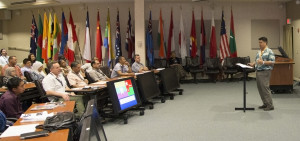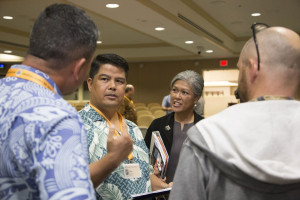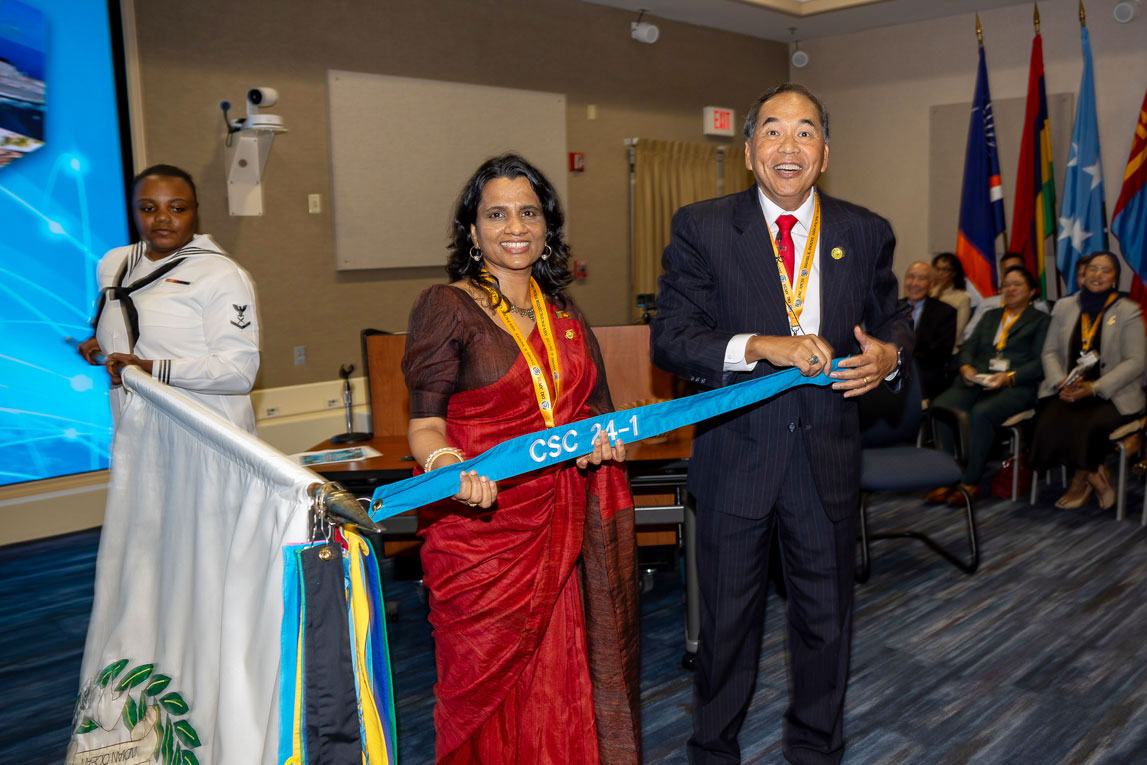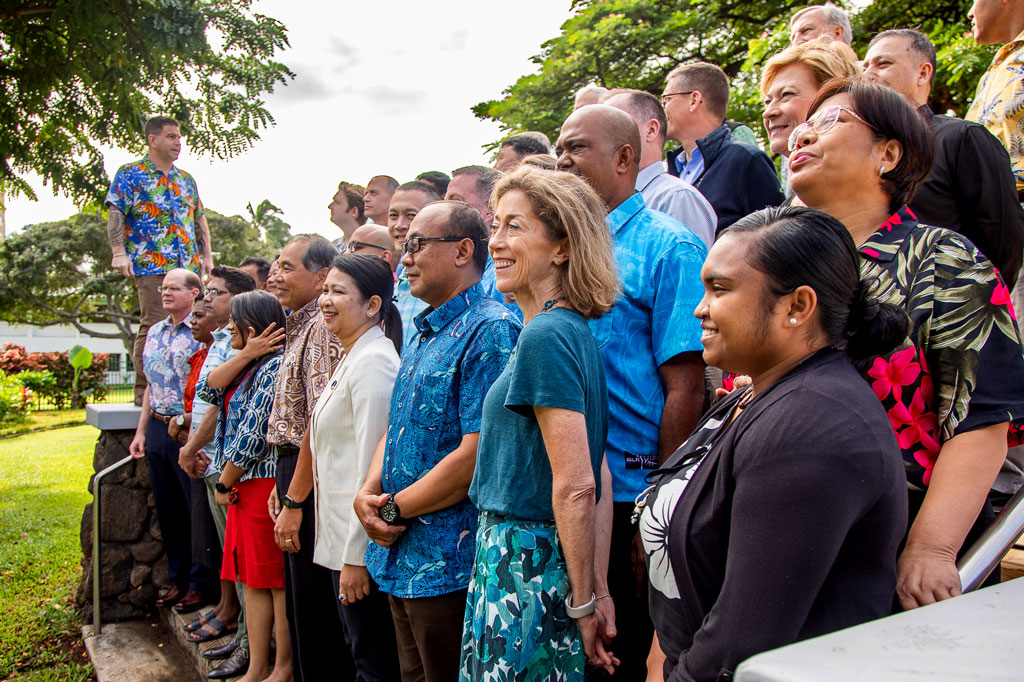
Myanmar Police Col. Zaw San provides details on his successful DKI APCSS Fellows Project to 120 Fellows attending the Comprehensive Crisis Management course (CCM 16-1) at the Daniel K. Inouye Asia-Pacific Center for Security Studies.
Police Col. Zaw San, an alumnus of the Comprehensive Crisis Management course (CCM 15-1), played a key role in Myanmar’s ability to conduct nearly violence-free elections in November.
The colonel briefed his contribution to 120 Fellows attending CCM 16-1 at the Daniel K. Inouye Asia-Pacific Center for Security Studies Feb. 22.
Following his brief, Center Director Brig. Gen. (Ret) Dan Leaf presented San with DKI APCSS’ Alumnus of the Year Award for 2015.
Zaw San served as part of a Myanmar team tasked to develop the nation’s security plan to ensure a safe and democratic vote.

Myanmar Police Col. Zaw San speaks with DKI APCSS faculty members Dr. Miemie Byrd (right) and U.S. Air Force Lt. Col Danny Makalena following his presentation to 120 comprehensive Crisis Management course (CCM 16-1) Fellows Feb. 22 at the Daniel K. Inouye Center for Security Studies. His security plan helped ensure safety for millions of Myanmar residents voting in a landmark national election in November. Zaw San is an alumnus of CCM 15-1.
Myanmar’s 2015 elections were the nation’s first fully participatory elections at the national level since the military turned over control to civilian authorities in 2010. Since that time, the country has experienced sectarian and ethnic tensions, leading at times to outbreaks of violence. Tensions caused many inside and outside Myanmar to fear this year’s election would not be a peaceful one.
Zaw San said a security plan was crafted prior to his CCM attendance, but he made improving it part of his course Fellows Project.
“I decided to use it as an opportunity to re-evaluate the plan by applying DKI APCSS’ nine-step problem-solving model. As I worked through the process, I was able to identify three key additional challenges for election security: logistics and budget problems, processes that are too centralized, and an inadequate number of special police personnel.”
The colonel developed nine supplemental actions weaved into Myanmar’s security plan. These included establishing local, regional, and national command centers to systematically control police movements while providing flexibility as situations evolve.
The police officer also implemented practices gleaned from lectures on “Whole of Society” and “Inclusion” lectures.
“I didn’t think about working with civil society before I came to DKI APCSS, because civil organizations and Myanmar Police Forces have had an adversarial relationship in the past.” He related however, the Center’s whole of society emphasis motivated him to promote cooperation with such organizations, leading to successful partnerships in securing voting stations.
Zaw San noted that he did experience a level of organizational resistance when attempting to implement changes, but said, “I overcame resistance by explaining to my supervisors that I developed my proposal while at DKI APCSS. The Center’s reputation provided tremendous credibility to my proposals.”
The result of the colonel’s work and that of Myanmar’s security apparatus was that millions of Myanmar citizens safely voted in their first freely elected national government – headed by the National League for Democracy – in more than five decades.
“I am very proud of Colonel Zaw San for seizing the opportunity at APCSS to make a positive impact for his country at a crucial time,” said Dr. Miemie Byrd, the colonel’s project mentor. “It is quite gratifying to know that our efforts as faculty members at APCSS can spur the successes of our fellows and their nations.”
The Asia-Pacific Center for Security Studies is a Department of Defense institute that addresses regional and global security issues. Military and civilian representatives, most from the United States and Asia-Pacific nations, participate in a comprehensive program of executive education, professional exchanges and outreach events, both in Hawaii and throughout the Asia-Pacific region.
The Center supports U.S. Pacific Command by developing and sustaining relationships among security practitioners and national security establishments throughout the region. APCSS’ mission is to build capacities and communities of interest by educating, connecting and empowering security practitioners to advance Asia-Pacific security. It is one of the Department of Defense’s five regional security studies centers.
Since opening in 1995, more than 9,900 alumni representing over 122 countries and territories have attended APCSS courses and workshops.
-END-









World-class institute graduating world-class leaders…..